What's superior, Pope or Council? Bellarmine sets out the objections
Some claim Bellarmine taught that a council is necessary to effect the loss of office (or 'non-papacy') of a manifestly heretical 'pope.' But this comes with some implications he firmly denied.
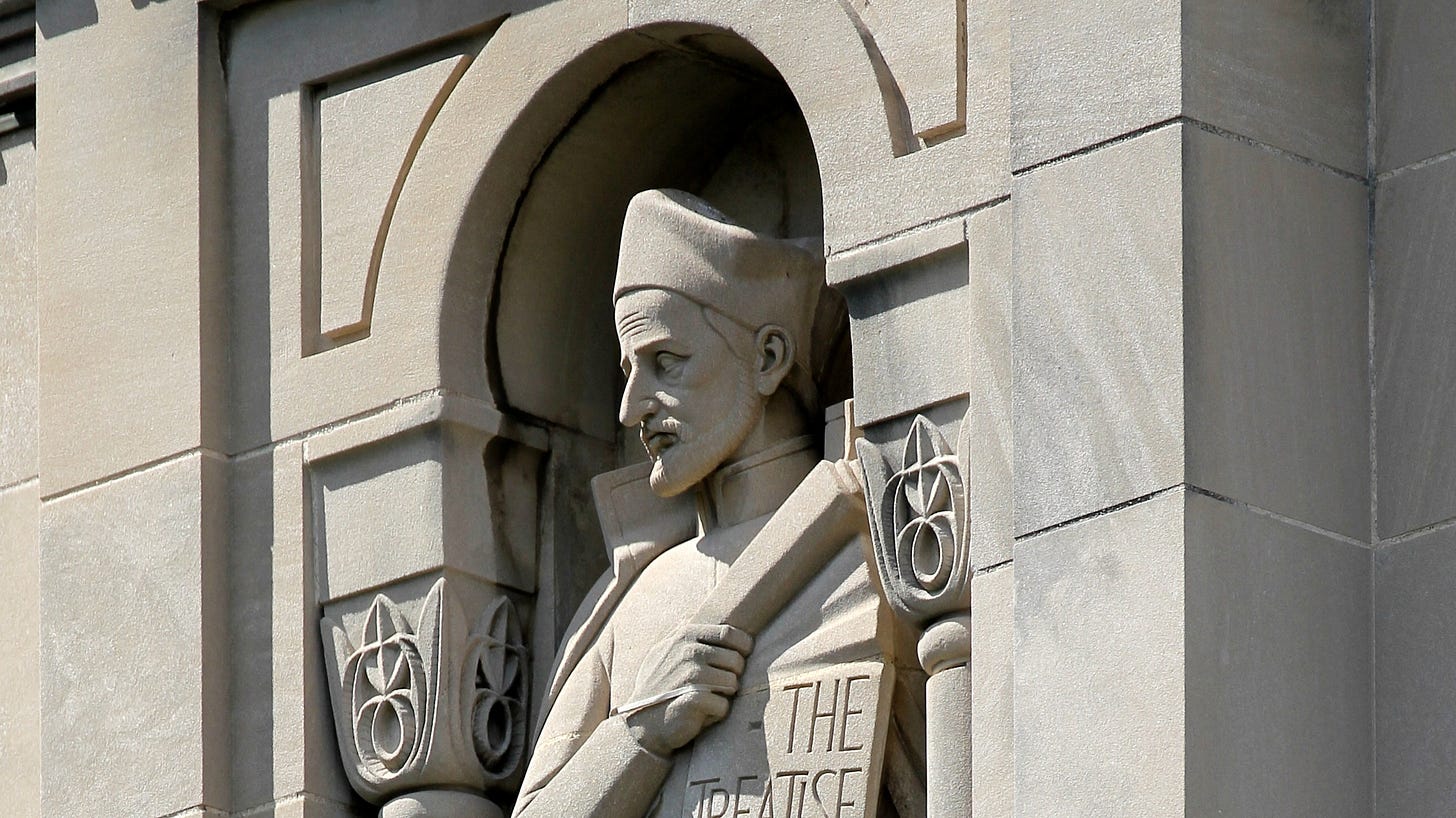
Some claim Bellarmine taught that a council is necessary to effect the loss of office (or 'non-papacy') of a manifestly heretical 'pope.' But such this comes with some implications he firmly denied.
Editors’ Notes
There are a variety of inventive ways proposed to take Bellarmine’s clear statement…
“Therefore, the true opinion is the fifth, according to which the Pope who is manifestly a heretic ceases by himself to be Pope and head, in the same way as he ceases to be a Christian and a member of the body of the Church; and for this reason he can be judged and punished by the Church.”
… and transform this clear statement either into the “fourth opinion” against which it was defended—which holds that…
“… the manifestly heretical Pope is not ‘ipso facto’ deposed, but can and must be deposed by the Church.”
… or into a “sixth opinion,” which gives lip-service to the idea of ipso facto loss of office, while making some sort of “official” declaration simply and absolutely necessary for the heresy to be sufficiently manifest.
We have already presented the explanation of Arnaldo da Silveira explaining why all this is a grave distortion of both Bellarmine’s thought and of sound doctrine:
In order to address these distortions, and to refute these arguments, we previously provided a new translation of Chapter 9-11 from Book I of Bellarmine’s Fourth General Controversy—On Councils. That section features several texts which are variously mistranslated or presented out of context, as a means of denying (or “nuancing”) what the Doctor of the Church had taught elsewhere.
But that section is not the only one which is misrepresented by the revisionists. In this piece, we will be providing the Chapter XIII and XIV of Book II of the same work. This is because certain comments made by the saint in Chapter XIX are also taken out of context and set to the same use. It is vital that we get all the key texts on the table and in their full context if we can hope to arrive—together—at the true teaching of Bellarmine, and the truth of the matter itself.
As mentioned, previously, we fully agree that Councils can often be a better means than others of achieving certain ends. In addition, they may be effective at making the recognition of certain facts (such as the non-papacy of an antipope) clear and obligatory on all.
We are also inclined to agree—although not in any sense that involves a council judging a true pope—that declarations and an imperfect gathering of bishops may well be an effective means of clarifying such situations.
But it is obviously a non sequitur to say that a Council being an effective means of achieving an end means that it is the only means.
S.D. Wright
Have you seen our 2024 Round-Up yet? Take a look today!
Fourth General Controversy—On Councils
St Robert Bellarmine
Book II—On the Authority of Councils
Chapter XIII: Whether a Council is above the Pope
Chapter XIV: The various opinions explained
Available from Google Books. Headings and line breaks added by The WM Review. Base text of translation by AI; scrutinised and edited line by line by humans.
Chapter XIII: Whether a Council is Above the Pope
State of the Question
This question arose at the time of the Council of Pisa. Since two Popes, Gregory XII and Benedict XIII, simultaneously occupied the See during the schism and neither seemed seriously intent on resolving the schism by voluntary abdication, as both had vowed and sworn to do before their pontificates, the cardinals of both factions withdrew to Pisa and began to deliberate whether it was lawful for them, against the will of those Popes, to convene a general council and depose them. Antonius recounts this dispute, which was held in Florence, in Summa Historialis, Part III, Title XXII, Chapter 5, §2.
Then, shortly thereafter, the Council of Constance was convened, and when John XXIII, who alone had attended the Council, secretly departed, leaving the Council without a head, the Fathers began to deliberate whether the Council could judge and depose an unwilling Pontiff.
Council of Basel
The greatest controversy, however, arose during the Council of Basel. For when Pope Eugenius IV wished to dissolve the Council of Basel, which had already begun, and to prevent it from proceeding further, the Fathers began to inquire whether they were bound to obey the Pope—or whether, instead, the Pope was bound to obey them (that is, the general council).
And since not long before, they had seen two Popes, John XXIII and Benedict XIII, deposed by the Council of Constance, thereby bringing an end to a great schism, they began to fear that if the Pope were obliged to obey the council, another schism might arise, leaving the Church without remedy. On this occasion, therefore, many adopted the opinion that a council is above the Pope.
But while they sought to block the way to schisms, they themselves created a new schism by appointing the antipope Felix V, who later, upon recognising his error, renounced the pontificate. And although later, at the Council of Florence and the final Lateran Council, the question seems to have been resolved, nonetheless—because the Council of Florence did not define it so explicitly, and because some doubt whether the Lateran Council, which defined the matter most explicitly, was truly ecumenical—even to this day, the question remains, even among Catholics.
Key distinctions set out
It must be observed that the Pope can be compared to the Council in two ways.
First, in one way, the true and undoubted Pope alone is taken on one side, and on the other the general Council of which the Pope presides, either personally or through his legates, so that nothing is defined without his consent.
Second, in another way, the Pope alone is taken on one side, and on the other, a general Council, over which the Pope does not preside, whether personally or through his legates. I understand ‘not presiding through his legates’ to mean even when a legate sent by him presides over the Council but acts against the will of the Pontiff; for in that case, he is not truly his legate, even if he conducts himself as though he were.
Although some believe that the present question primarily concerns the first comparison—namely, those who think that a council without the pope is not a true council and, consequently, that the pope, without doubt, is greater than such a council—the principal question, in fact, concerns the second comparison.
This is evident, firstly, because the question was introduced on account of the deposition of Popes; that is, to inquire whether a Pope, even against his will, could be judged, condemned, and deposed by a council. For this purpose, the [first] question, of whether a council with the Pope is greater than the Pope alone is superfluous; for whether it is greater or lesser, it will never judge, condemn, or depose a Pope against his will. How could such a council act, since [by the definition given] it does nothing without the Pope’s consent? Would the Pope willingly allow himself to be judged and condemned against his will?
Secondly, this is also evident from the Council of Basel. For the Fathers of Basel, who declared the council to be above the Pope, claimed that their Council of Basel was above Pope Eugenius, at a time when neither the Pope nor his legate was present at the council. Indeed, they attempted in every way to depose the Pope, even against his vehement opposition.
This [second comparison], therefore, is the principal and only question to be addressed. For from the resolution of this [latter] question, [viz., the pope alone, vs. a general council over which the pope does not preside,] it will also become clear what is to be said about the former question.
Those who teach that the Pope is above a Council convened without him likewise teach that the authority of the Pope alone is equal “in intensity” (intensive) to that of a Council with the Pope, even though the authority of the Council is greater “in extent” (extensive). Therefore, they hold that such a Council cannot judge or condemn the Pope, nor bind him coercively by its decrees, but only provide direction [directive]; and that he may dispense with its decrees—except for those concerning faith, which are immutable. The reason for this is that an equal does not have power over an equal.
On the other hand, those who teach that a council without the Pope is above the Pope also consequently teach that a council with the Pope is above the Pope and binds him. Nevertheless, they admit that the Pope, as the minister of the Church, can dispense with the precepts of a general council, though if he dispenses poorly, he can later be corrected and punished by a general council. Therefore, leaving aside this first comparison, only the second is to be addressed.
Chapter XIV: The various opinions explained
Regarding the proposed question, I find three opinions among learned authors.
First opinion: A council is above the pope.
The first is that a Council is above the Pontiff.
This is asserted, above all, by all heretics of this time—and particularly Hermann Hamelmann, who attempts to prove this with many arguments in Book III, Chapter 13 of his Prolegomena.
The same is asserted by Cardinal of Cambrai, John Gerson, James Almain, and several others in their treatises on the power of the Church. Similarly, Nicholas of Cusa, in his treatise On Canonical Concordance, Book II, Chapter 14; Panormitanus, in the chapter Significasti, extra De Electione, and in the same place, his master, Cardinal of Florence; likewise Abulensis in Chapter 18 of Matthew, Question 108, and in his defence of three conclusions; and certain others.
To understand this opinion, it should be noted that there are two foundations to this position. The first is that the Pope is not properly the head of the universal Church when it is gathered together.
Heretics and other authors understand this in different ways. The heretics claim that the Pope is in no way the head of the whole Church, but merely the bishop of his particular Church and, at most, the Patriarch of the West.
However, the other authors cited teach that the Pope is indeed the head and shepherd of individual Christians and particular Churches when taken separately, but not of the whole Church when gathered together in a General Council. At that time, [they say,] the Church assumes the form of a body, and the entire power, which was previously dispersed among its various members, is united. Thus, to compare the Pope with other Christians individually is to compare a nobler member with a less noble one. However, to compare the Pope with the Council is to compare a part with its whole and, consequently, the lesser with the greater.
To avoid the argument that “a Council without the Pope is not a complete whole but rather a body without a head,” they add a second foundation. This is that supreme ecclesiastical power resides both in the Council and in the Pope, but more principally, immediately, and immovably in the Council. For they claim that Christ immediately granted all the power of binding and loosing to the Church; and that, since the Church always endures, this power immovably remains in it. However, because the Church cannot always remain gathered or exercise this power directly, Christ instituted the Supreme Pontiff as a general instrument for all the Church’s actions and placed this supreme power in him so that he might exercise it in the name of the Church.
These authors differ among themselves, in that some place this power formally and subjectively in the pope alone, while in the Church they place it as in an end, because it exists for the Church; as in the one regulating, because it belongs to the Church to regulate and direct the pope, since the Church cannot err, but the pope can; and finally, as in one who supplies, because when the pope is absent due to natural or civil death, the Church supplies his office.
Others, however, hold that this power is formally and subjectively in the Church primarily, and instrumentally in the Pope.
Nevertheless, they all agree in teaching that this power is immediately in the Church, and hence, when the Pope is dead, deposed, or unwilling to attend the Council, the Council is not, for this reason, an imperfect body but a perfect one, possessing the papal power to define matters of faith, enact laws, grant indulgences, and so forth. From this, they conclude that the Council is above the Pope and can judge and punish him; and that to ask whether the Pope is greater than the Council is the same as asking whether a part is greater than its whole.
Finally, they assert that the Pope in the Church is what the Doge is in the Venetian Republic or the general superior in a religious order. For it is clear that the Doge of Venice is above individual magistrates, senators, and Venetian cities; but not above the entire Senate when assembled. Moreover, when the Doge dies, all his authority, even that which is “ducal”, reverts to the Senate. Similarly, the general superior is above individual religious, even priors and provincials, but not above the general congregation, which he must obey rather than command.
Second opinion: The pope is above a council, but can submit himself to it
The second opinion is that of certain canonists, who hold that the Pope is indeed above the Council and cannot be judged by anyone against his will; yet that he can subject himself to the Council and grant it authority over himself; and if he does so, he must acquiesce to the judgment of the Council, even if it concerns his deposition.
Thus teaches the gloss on the canon Nos si incompetenter, 2nd Question, 7, and on the canon In Synodo, Distinction 63.
Third opinion: The pope is above the Council and cannot submit himself to its coercive judgment
The final opinion, which is almost universal, is that the Pope is so far above a Council that he cannot even subject himself to its judgment if it concerns a coercive decision. This opinion seems to belong to the older Scholastics, such as Albert the Great, Blessed Thomas, Blessed Bonaventure, Richard, Paludanus, and others in the fourth book, Distinction 19, where they discuss the keys, although they did not address this matter explicitly.
However, it is expressly taught by St Antoninus in the third part, Title 22, Chapter 10, §4 of his Historical Summa and in the second part, Title 3, Chapter 11 of his Theological Summa; by John of Torquemada in Book II, Chapters 93 and 104 of his Summa on the Church, and in his response to the envoys of Basel regarding the authority of the Supreme Pontiff and the General Council; by Alvarus Pelagius in On the Lamentation of the Church, Book I, Article 6; by Dominic Jacobatius in Book X, On Councils, Article 7, where he disputes this question at length and resolves sixty-three objections of his opponents; by Cardinal Cajetan in his treatise On the Comparison of the Pope and Councils and in his Apology for the Said Treatise; by Albert Pighius in Book VI, On the Hierarchy of the Church; by Francis Ferraris in Book IV, Against the Gentiles, Chapter 76; by Augustine of Ancona in his treatise On the Power of the Church; by Peter de Monte in his book On the Power of the Pope and Councils; by Francis Turrianus in three books he wrote on this question; and by nearly all canonists on the chapter Significasti, De Electione, and the canon Si Papa, Distinction 40. Also, John Anthony Delphinus in Book II, Chapter 14 of his On the Church; Thomas Campegius in his treatise On the Power of the Roman Pontiff, Chapters 22 and following; and Nicholas Sanders in Book VII, On the Visible Monarchy, where he discusses the Council of Constance, page 540.
Immediately following this section, Bellarmine proceeds to answer these arguments, refute the false opinions, and prove the true doctrines. He defends two theses, which presumably will not be disputed by any Catholic today:
Chapter XV: The Supreme Pontiff is the head of the whole Church
Chapter XVI: The supreme power is not in a Council
Because no Catholic will dispute these points, we will not be translating and publishing them.
In the next parts of this series, therefore, we will provide the translations for the following crucial chapters answering the questions set up in this piece:
Chapter XVII: The Supreme Pontiff is absolutely above a Council
Chapter XVIII: The Pope cannot subject himself to the coercive judgment of Councils
Chapter XIX: Refuting the opponents’ arguments
Read Next:
HELP KEEP THE WM REVIEW ONLINE!
As we expand The WM Review we would like to keep providing free articles for everyone.
Our work takes a lot of time and effort to produce. If you have benefitted from it please do consider supporting us financially.
A subscription from you helps ensure that we can keep writing and sharing free material for all. Plus, you will get access to our exclusive members-only material.
(We make our members-only material freely available to clergy, priests and seminarians upon request. Please subscribe and reply to the email if this applies to you.)
Subscribe now to make sure you always receive our material. Thank you!
Follow on Twitter, YouTube and Telegram:



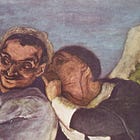
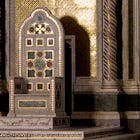
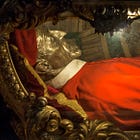

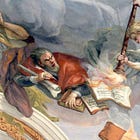
Do you guys do your own Latin translations personally, or do you have a competent and disinterested/unbiased translator who provides them to you?